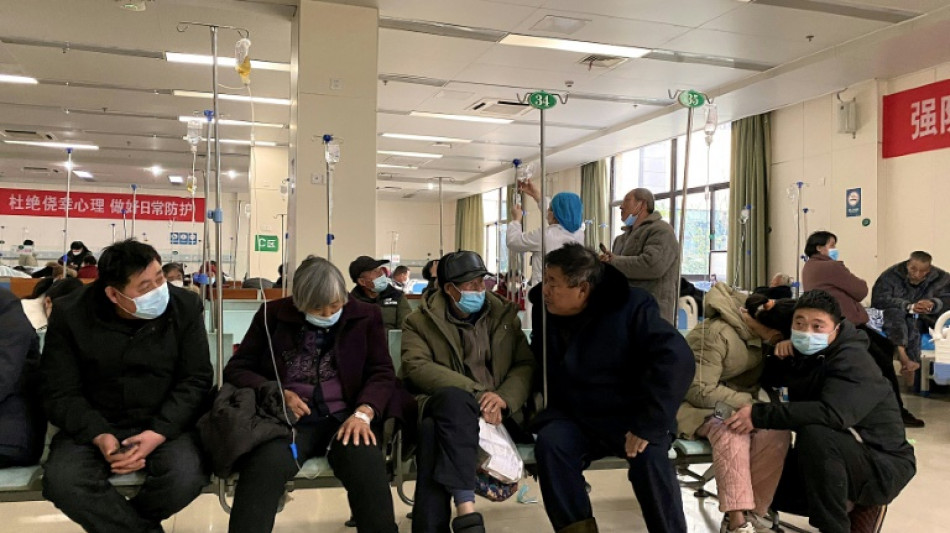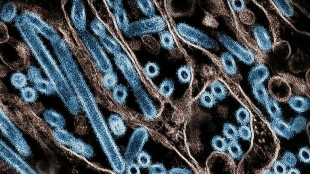

China reports almost 60,000 Covid-related deaths in a month
China's health authorities reported on Saturday almost 60,000 Covid-related deaths in just over a month, the first major death toll released by the government since it loosened its virus restrictions in early December.
China has been widely accused of underreporting its number of coronavirus fatalities since the abandonment of its zero-Covid policy.
Only a few dozen deaths had been recorded officially in December before Saturday's announcement, despite evidence of crematoriums and hospitals being overrun.
But a National Health Commission (NHC) official said on Saturday China had recorded 59,938 Covid-related deaths between December 8, 2022, and January 12.
The figure refers only to deaths recorded at medical facilities, with the total number likely to be higher.
The data includes 5,503 deaths caused by respiratory failure directly due to the virus, and 54,435 deaths caused by underlying conditions combined with Covid, Jiao Yahui, head of the NHC's Bureau of Medical Administration, told a news conference.
Health officials insisted Wednesday it was "not necessary" to dwell on the exact number.
Beijing revised its methodology for categorising Covid fatalities last month, saying it would count only those who die specifically of respiratory failure caused by the virus.
This was criticised by the World Health Organization, which said the new definition was "too narrow".
WHO chief Tedros Adhanom Ghebreyesus said the organisation was continuing to "ask China for more rapid, regular, reliable data on hospitalisation and deaths, as well as... viral sequencing".
Beijing, however, has insisted it has been transparent with the international community about its data, urging the WHO to "uphold a scientific, objective and just position".
- Elderly at risk -
Health officials said Saturday the average age of those who had died was 80.3 years, with more than 90 percent of fatalities above 65 years old.
Most suffered from underlying conditions, they said.
Millions of the elderly in China are not fully vaccinated, with President Xi Jinping's government criticised for not prioritising immunisation campaigns among the country's most vulnerable citizens.
Officials also suggested on Saturday that the peak of the current wave might have passed.
Just under 2.9 million patients visited fever clinics on December 23, they said, but the figure had dropped to 477,000 nationwide on January 12.
They said the number of severely ill patients in hospitals was still high but that the peak appeared to have been in early January.
The priority, they said, was to monitor the situation in rural areas and focus on early detection and treatment for the most vulnerable.
M.Schneider--HHA



